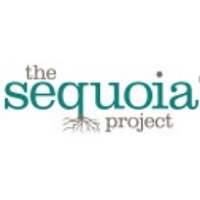 The Sequoia Project-Led Industry Workgroup Provides Actionable Implementation Guidance and Feedback
The Sequoia Project-Led Industry Workgroup Provides Actionable Implementation Guidance and Feedback
In advance of the expected publication of U.S. Department of Health and Human Services’ (HHS) Office of the National Coordinator for Health Information Technology (ONC) final information blocking rules, The Sequoia Project (@sequoiaproject), a non-profit dedicated to solving health IT interoperability for the public good, released “Guidance to the Community and Implementation Feedback to HHS.” The guidance was developed by a multi-stakeholder Information Blocking Workgroup created to:
- Inform The Sequoia Project’s comments to ONC on the proposed rules
- Identify practical implications of the proposed and final information blocking rules
- Build a community of practice around collaborative implementation before and after the ONC Final Rule
“Given the broad and significant impact the rules would have to the health information sharing community, we formed the Information Blocking Workgroup. Working collaboratively to interpret and apply the rules will be important to fostering cooperation as the community prepares for ONC and OIG [Office of Inspector General] enforcement,” said Mariann Yeager, CEO of The Sequoia Project.
The work group addressed implementation-related aspects of priority components of the information blocking regulation, including:
- Regulatory Definitions (e.g., Health Information Exchange and Health Information Network)
- Information Blocking Practices
- Recovering Costs/Licensing Exceptions
- Compliance Plans and Implementation Plans
The workgroup consists of engaged experts, regardless of their membership in The Sequoia Project. Co-chairs David Camitta MD, of SpiritHealth, and Paul Uhrig of Surescripts, led the workgroup with the support of co-facilitators Mark Segal of Digital Health Policy Advisors, and Steve Gravely of Gravely Group. Representatives from diverse sectors of health information technology were included in the workgroup, including:
- Associations and organizations in the health IT community
- Consumer organizations
- Federal government agencies
- Health information networks and service providers
- Healthcare providers and physicians
- Legal, technology, standards, and policy subject matter experts
- Payer organizations
- Public health organizations
- Health IT vendors
- Informatics organizations
- Safety net providers and service providers
- Release of information companies
“This report aims to be a guide for the community,” said Yeager. “Implementation guidance is essential to reduce uncertainty and prepare for compliance.”
A previous phase 1 deliverable of the workgroup was provided to the ONC in May 2019 as formal comments on ONC’s Proposed Rule implementing provisions of the 21st Century Cures legislation, including information blocking. Today’s guidance is the phase 2 deliverable, focused on implementation and implications of the ONC’s proposed rules and potential outcomes. During phase 3, which began in January 2020, the work group will review the Final Rule and identify and address priority implementation topics and approaches.
The full report, which includes a complete summary of discussions and observations from workgroup members, is available for public use on the Information Blocking Guidance page.
About The Sequoia Project
The Sequoia Project is a non-profit, 501c3, public-private collaborative chartered to advance implementation of secure, interoperable nationwide health information exchange. The Sequoia Project focuses on solving real-world interoperability challenges, and brings together public and private stakeholders in forums like the Interoperability Matters cooperative to overcome barriers. Sequoia also supports multiple, independently governed interoperability initiatives, such as the Patient Unified Lookup Service for Emergencies (PULSE), a system used by disaster healthcare volunteers to treat individuals injured or displaced by disasters. The Sequoia Project is also the Recognized Coordinating Entity (RCE) for the Office of the National Coordinator for Health IT’s Trusted Exchange Framework and Common Agreement (TEFCA), for which it will develop, implement, and maintain the Common Agreement component of TEFCA and operationalize the Qualified Health Information Network (QHIN) designation and monitoring process.
